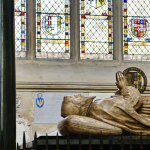Muslim Burial Traditions, Funeral Services & Death Prayers
About
Either if you are attending a Muslim funeral or just curious about Muslim’s burial ceremony traditions, this is the guide for you
One of the most important aspects when we pass away is to ensure that our traditions and culture is respected. This is true even in the kind of passing we receive, specifically the kind of funeral that is planned for us by those that love us. To help make sure that your passing can be marked in the way that you wanted, we want to take a look at important and meaningful Muslim funeral traditions.
Knowledge is power, and with this you can give friends and family the kind of funeral that tallies with their own culture.
The main challenge in understanding Muslim funeral traditions is appreciating the two major cultural ‘factions’ – the Shi’a and Sunni. While common beliefs reach into both sides of Islam, there is more to Muslim funeral traditions than with other religions. They believe that those who carry out good, righteous deeds in life will be granted passage to Paradise, when they Day of Judgement arrives.
When Dying
Before the funeral, and before death even occurs, the traditions begin. A dying Muslim should be surrounded by family members and their closest friends, who can help encourage a safe passing into the next life. They should provide comfort and confidence to the dying person, convincing them to say ‘Shahada ‘– the confirmation of their true deity, Allah. Those present when the person passes should continue tradition by saying “Inna lillahi wa inna ilayhi raji’un”. This means “Verily we belong to Allah, and truly to Him shall we return” and is a must for all Muslims who have since passed from this world.
Then, the deceased should have their eyes and lower jaw closed, and the body should be covered with a clean sheet. Also, a “dua” should be carried out – a message to Allah to ask for the forgiveness of the sins of the dead.
Timing of a Funeral
The timing aspect of a Muslim funeral can be, on the face of it, tough to get right. Shariah Law claims that the body should be buried as soon as it can be from the time of death. Therefore, all preparation and planning should begin more or less immediately. Try and contact, if needed, a local Islamic Community Organization. They can help to ensure that a truly Muslim funeral service can be arranged and put together to mark the passing of the dearly departed.
They should work to help the grieving family get arrangement for time and a place, and offer any assistance that they can in co-ordination and emotional support to handle the pain of death.
Also, please be aware that before a funeral – in Western culture – an autopsy is usually carried out to find the true cause of death. In Islam, this is seen as a desecration of the deceased and are usually ignored. If you would like to have an autopsy carried out but cannot be given permission due to this, please do not push or force the issue upon the family.
Another important part of the pre-funeral scenario is managing the donation of organs. In Islam, this is allowed as the Qur’an states that “Whosoever saves the life of one person it would be as if he saved the life of all mankind.”
Therefore, if you would like to submit the person for an organ donation that they agreed to, then there is no traditional thought against this. Indeed, it’s welcomed.
Preparing the Corpse
The deceased body has to be washed and shrouded – usually carried out by same-sex family members, or a spouse. It should take three washings to ensure that the body is completely clean. It can be washed more, but should always be an odd, not an even, number.
To ensure cleanliness, it should work from the upper right side to the lower left side. A dead female should have her hair washed and braided into three separate braids. Then, the body should be covered in a white sheet.
If possible, the right hand should lay on the chest with the right hand sitting on top of it, like a position of prayer. Sheets should then be folded over the body from right to left. Use three sheets to cover the body entirely and to offer the level of privacy desired.
Then, the body will be transported over to the mosque to go through Salat al-Janazah, which are Muslim funeral prayers.
The Funeral Service
Once the time of the service itself arrives, several Muslim funeral traditions kick in. The prayers mentioned above should be performed by all community member. Prayers are recited in a prayer or study room, not in the mosque itself. This can also take place in a courtyard if need be. Anyone who is praying should be sure that they face towards Mecca, and are in at least three lines of people. It should be the closest related male to the deceased first, then other men, children, and then women.
Once the reciting is over, the body is transported to the cemetery to be buried and laid to rest. Only men are allowed to be present, but this is a changing process depending on the Muslim community and their strictness to the rules. The grave will always be perpendicular to the Qiblah, and the body should always face this direction, lying on their right side. The person who places the body in the grave must then recite “Bismilllah wa ala millati rasulilllah” – “In the name of Allah and in the faith of the Messenger of Allah”.
Afterward, a layer of wood – or stone – should be placed over the body to prevent contact with the soil. Each mourner who is present will then place three handfuls of soil into the grave – once it has been filled, a small marker is placed to be a recognizable location for the deceased.
However, no elaborate designs are allowed – it has to be minimalistic.
With this in mind, you should find it much easier to adhere to the challenge of a Muslin funeral arrangement.
Let's get started
Lexikin gives you complete control of your life and your legacy by putting everything in one place.


